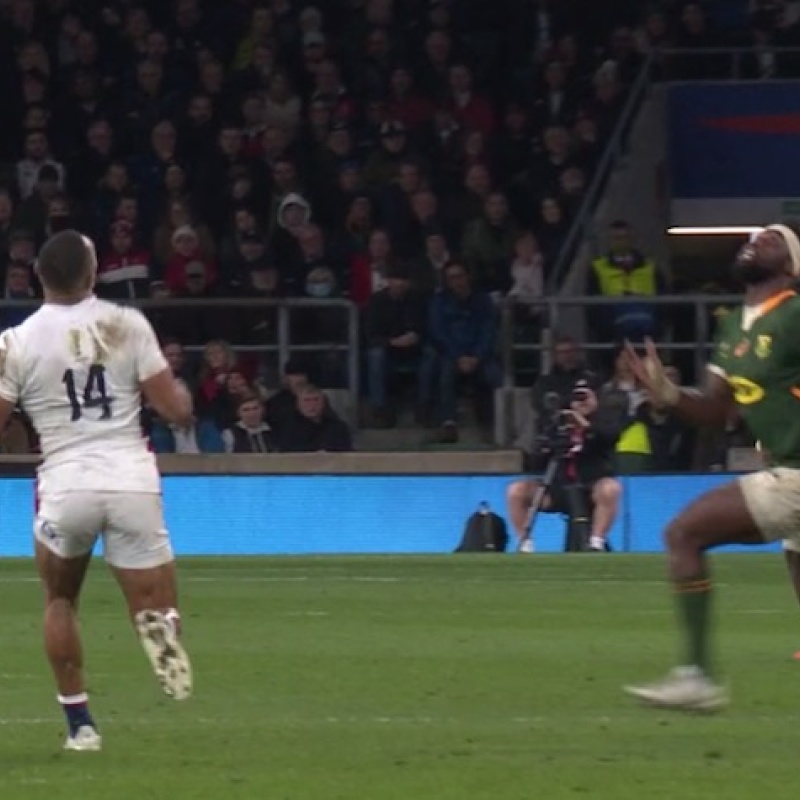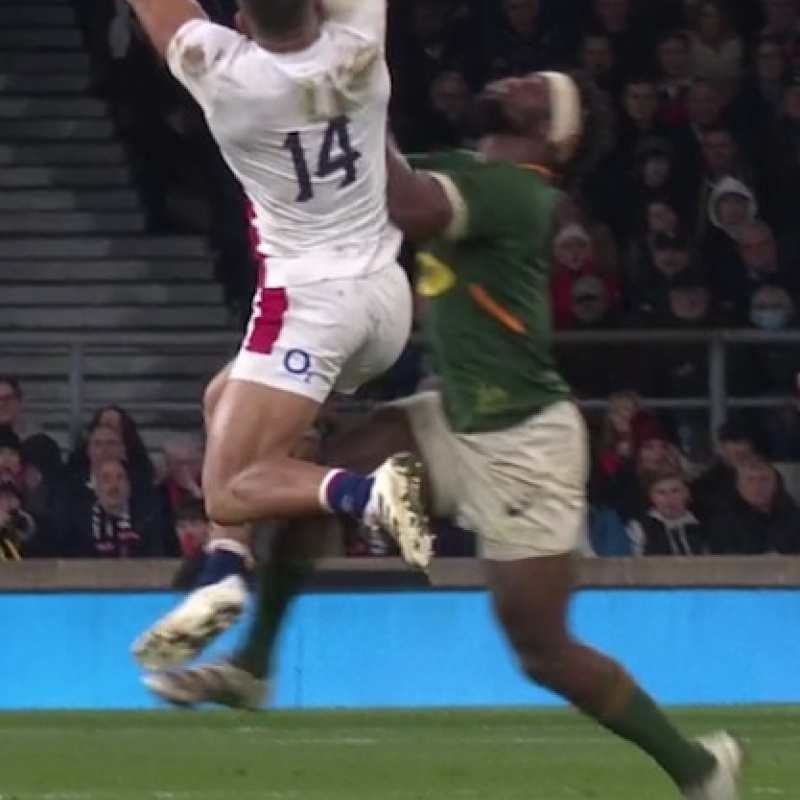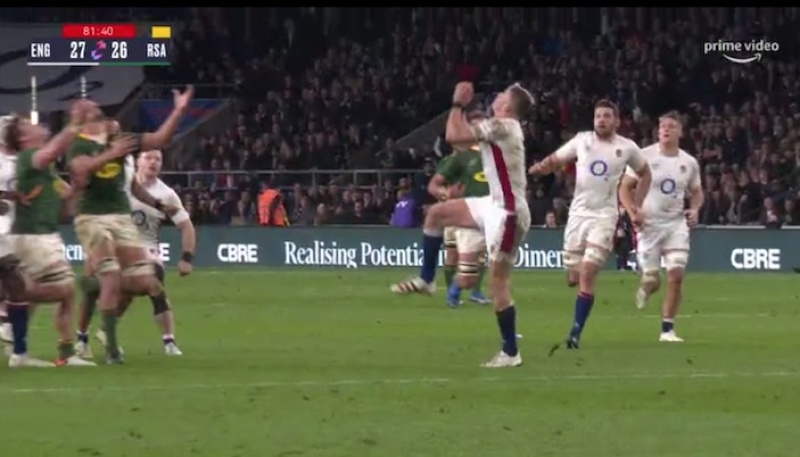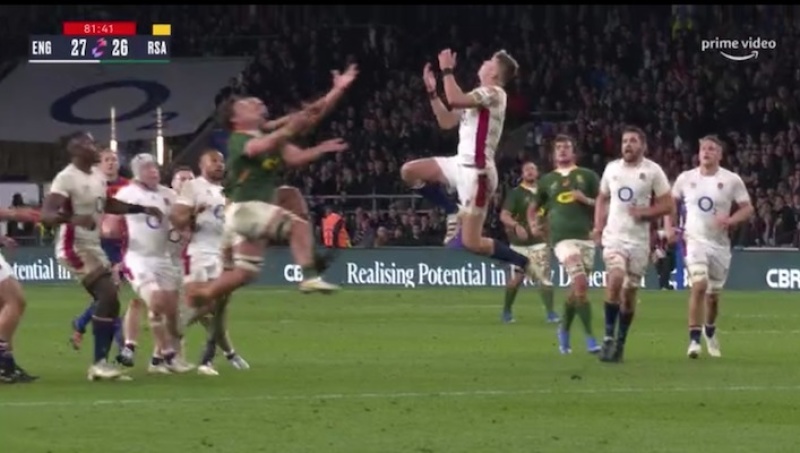Good Evening,
I am a former high level player, coach with some referee experience, looking to do more as I have been out for a few years and step up a level. I am new to this referee forum as I thought this would be a more appropriate place to post the questions than general rugby forums. I hope that you all would be able to help me with my questions. Thank you in Advance.
I am struggling with the guidance and interpretations of international referees on competing in the air. Tonight England beat South Africa in a fantastic game. I did however struggle to come to terms with some decisions that have effectively decided the result of the game. From someone that is looking to potentially move up a level as a referee and coach, how do we coach a player on the rules, or make decisions in games, if the interpretation on the world stage differs depending on the referee in the game? In the last year and especially in the autumn series, the referees have interpreted this rule with such variety that it is difficult to know what is right. With the amount of high balls being used in rugby and the pressure on young players to not make a decision that would have them sent off or penalised, should we not have a more clearly defined rule and more importantly implementation of these rules?
Questions I have for the Forum, I would truly appreciate your thoughts.
My interpretation would be similar to the England Players and Coaches who commentated and largely said the same.
I hope there is some insight that can be provided by the forum.
Thank you
Image 1 & 2- Kolisi & Marchant are running different lines to a ball kicked over the defensive line. Looking at the ball the entire time, Kolisi Jumps as high as a forward can and then is beaten in the air by Marchant as a back with a better running line. The commentators seem to agree that it was the wrong decision. Referee Decision - Kolisi is given a yellow card and sent off as he was not competing for the ball.
Image 3&4 - Etzebeth & Steyn both running flat out whilst looking at the ball the entire time, then jumping to a ball that is, at the time of jumping in between the two of them and Freddie Stewart (btw what a talent). Referee Decision - Penalty against South Africa, match over. TMO not required to look at potential infringement after contest in the air.









I am a former high level player, coach with some referee experience, looking to do more as I have been out for a few years and step up a level. I am new to this referee forum as I thought this would be a more appropriate place to post the questions than general rugby forums. I hope that you all would be able to help me with my questions. Thank you in Advance.
I am struggling with the guidance and interpretations of international referees on competing in the air. Tonight England beat South Africa in a fantastic game. I did however struggle to come to terms with some decisions that have effectively decided the result of the game. From someone that is looking to potentially move up a level as a referee and coach, how do we coach a player on the rules, or make decisions in games, if the interpretation on the world stage differs depending on the referee in the game? In the last year and especially in the autumn series, the referees have interpreted this rule with such variety that it is difficult to know what is right. With the amount of high balls being used in rugby and the pressure on young players to not make a decision that would have them sent off or penalised, should we not have a more clearly defined rule and more importantly implementation of these rules?
Questions I have for the Forum, I would truly appreciate your thoughts.
- If these 2 crucial decisions (see photos attached) are not legally competing in the air, then what does class as a non-penalty or non-yellow card legal competition in the air? Surely it can't be that players should only compete in the air, if they can jump as high as the other player or competing will not cause the other player to be pushed or fall down as a result of competing?
- On the TMO, can anyone remember a TMO ever disagreeing with a referee? What is their actual role, to just play tape, or to genuinely make decisions or disagree with the referee if they think the referee is wrong? Potentially to avoid negative press I assume they just told to always agree with the referees decision?
My interpretation would be similar to the England Players and Coaches who commentated and largely said the same.
- Although not straight forward in the least, these decisions were made quickly by the referee Andrew Brace and resulted in a penalty and yellow card. All players were clearly running flat out, not taking their eye off the ball and then jumping without being aware of another person doing the same. Genuinely competing. The referee's decision was to say that the players were not genuinely competing, sending 1 player off and giving a penalty for the second. It could have been England on the losing side as it has been many a time before, so when are we going to have firm guidance from World Rugby on how referees should implement difficult rules?
- Today the rules seemed to have been interpreted that the highest jumper, or the person in the best position should have a clear right to take the ball without any competition. Should we teach rugby players that they should be aware that being a forward means you cannot jump as high as a back row player and therefore should not compete? Or if you do compete, try and watch out for the other player, whilst running and jumping and keeping your eyes on the ball at all times! Surely there has to be a more defined implementation to allow fair and safe competition for a play being used so much in the modern game.
I hope there is some insight that can be provided by the forum.
Thank you
Image 1 & 2- Kolisi & Marchant are running different lines to a ball kicked over the defensive line. Looking at the ball the entire time, Kolisi Jumps as high as a forward can and then is beaten in the air by Marchant as a back with a better running line. The commentators seem to agree that it was the wrong decision. Referee Decision - Kolisi is given a yellow card and sent off as he was not competing for the ball.
Image 3&4 - Etzebeth & Steyn both running flat out whilst looking at the ball the entire time, then jumping to a ball that is, at the time of jumping in between the two of them and Freddie Stewart (btw what a talent). Referee Decision - Penalty against South Africa, match over. TMO not required to look at potential infringement after contest in the air.





